Karim Farekh, a Palestinian multimedia artist and director residing between Florence and Dubai, imagines a future where Palestinian youth redefine freedom and identity, breaking free from historical constraints through a futuristic perspective.
In the expanse of the Middle East, the notion of a future unchained from the past emerges as both radical and necessary. For Palestinians more pointedly, the future isn’t certain—it’s a contested space that must be claimed with intention and perhaps, defiance.
It’s against this backdrop that Karim Farekh crafts his story, turning to speculative fiction to probe what the future of Palestinian youth might be if history had loosened its grip.
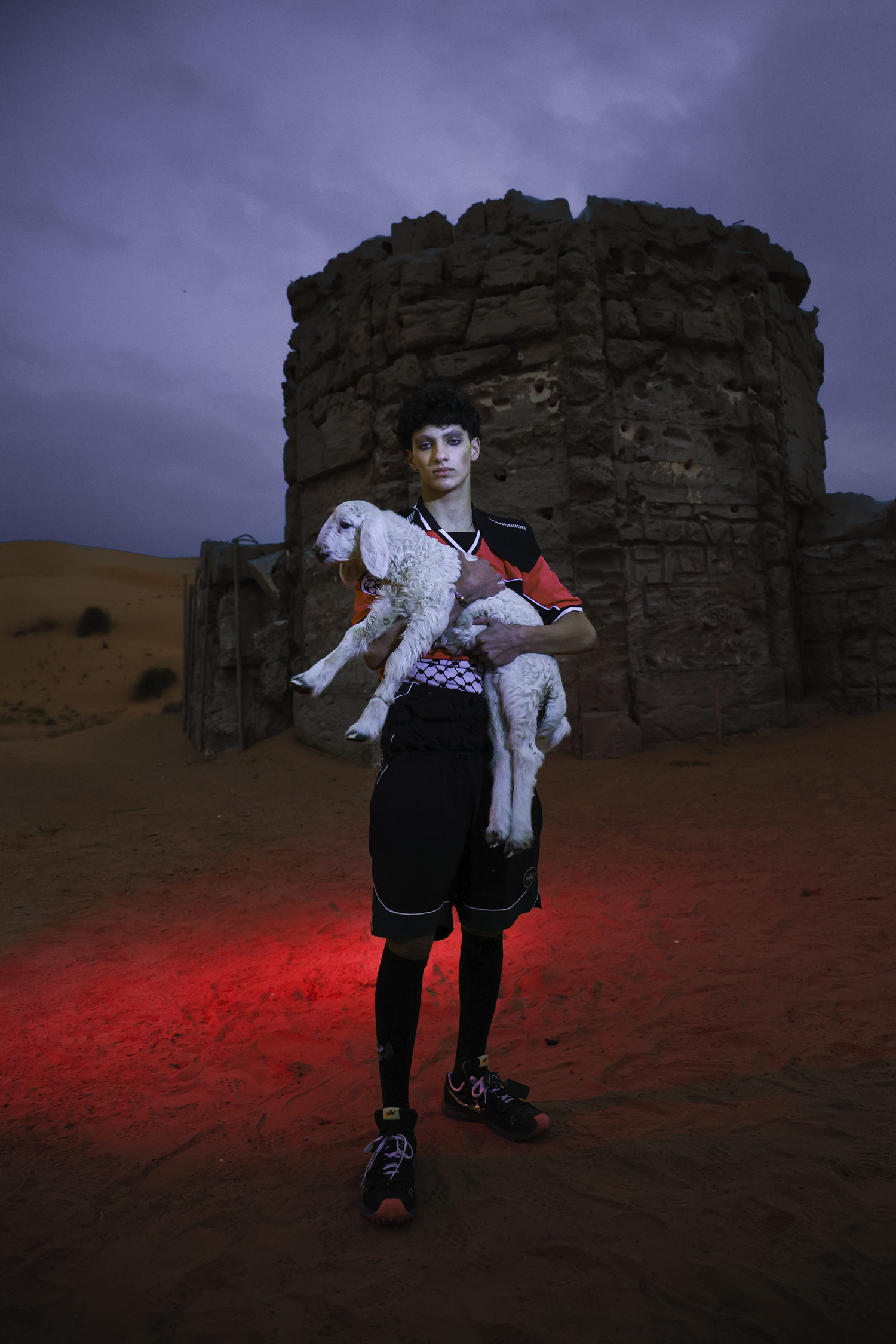
There’s something noteworthy about the scarcity of sci-fi content within a region renowned for its rich history and mastery across numerous genres. This lack of futuristic narratives could be due to the culture’s difficulty in projecting itself into the future or possibly a deliberate avoidance of a genre heavily influenced by Western norms. In this context, Farekh sought to bring a new dimension to the genre.
His premise was simple: What if Palestinian youth were truly free?
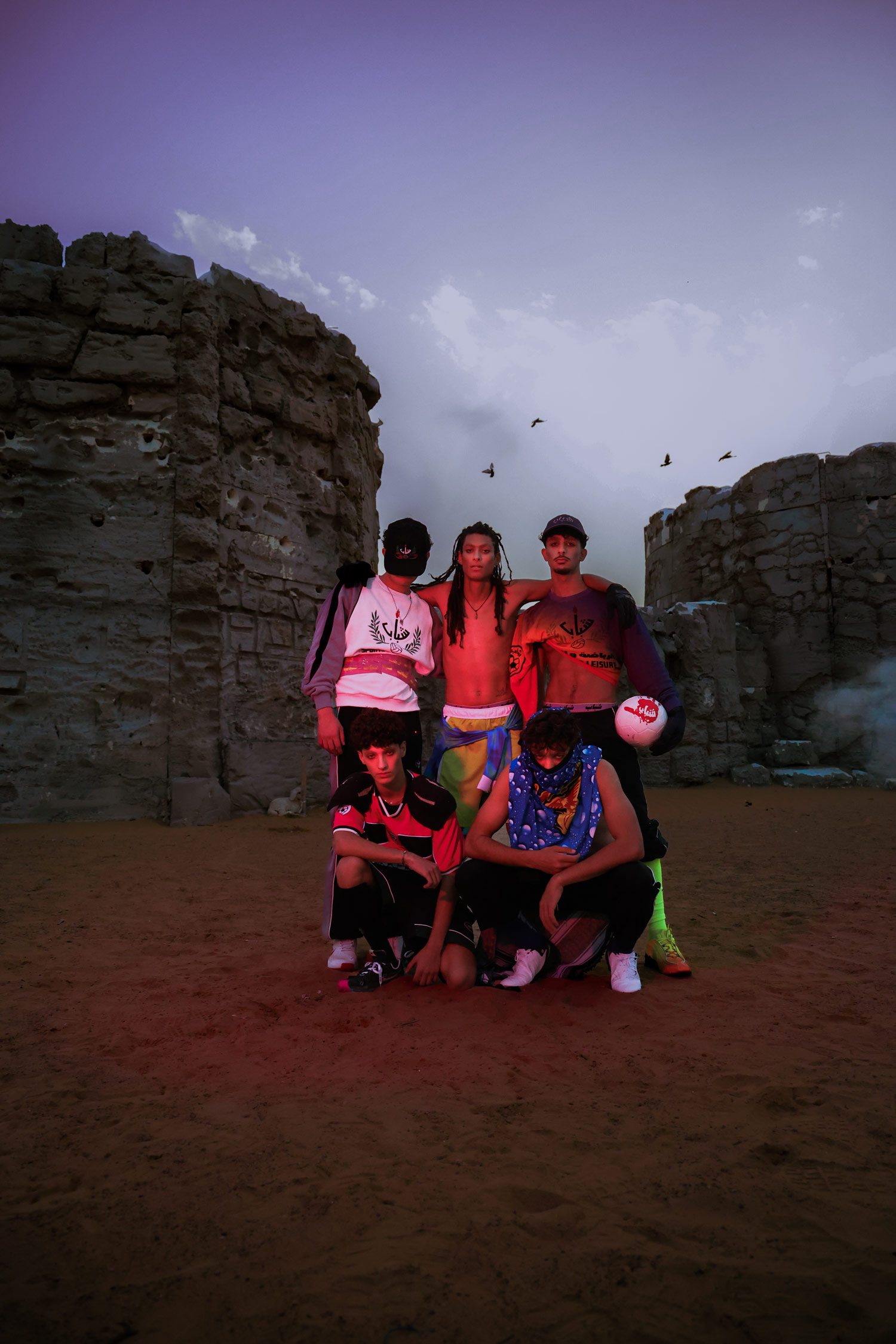
This editorial is not just the revival of an esthetically pleasing, albeit overlooked, genre for the region. Farekh’s work is woven from threads of tradition and innovation, an exchange between past and future. Rather than being tethered to the weight of history, he dreams of what lies beyond and defies conventions. Through his evocative imagery, he paints a portrait of a world where freedom is not a distant dream but a birthright, where cultural identity is not a burden but a blueprint.
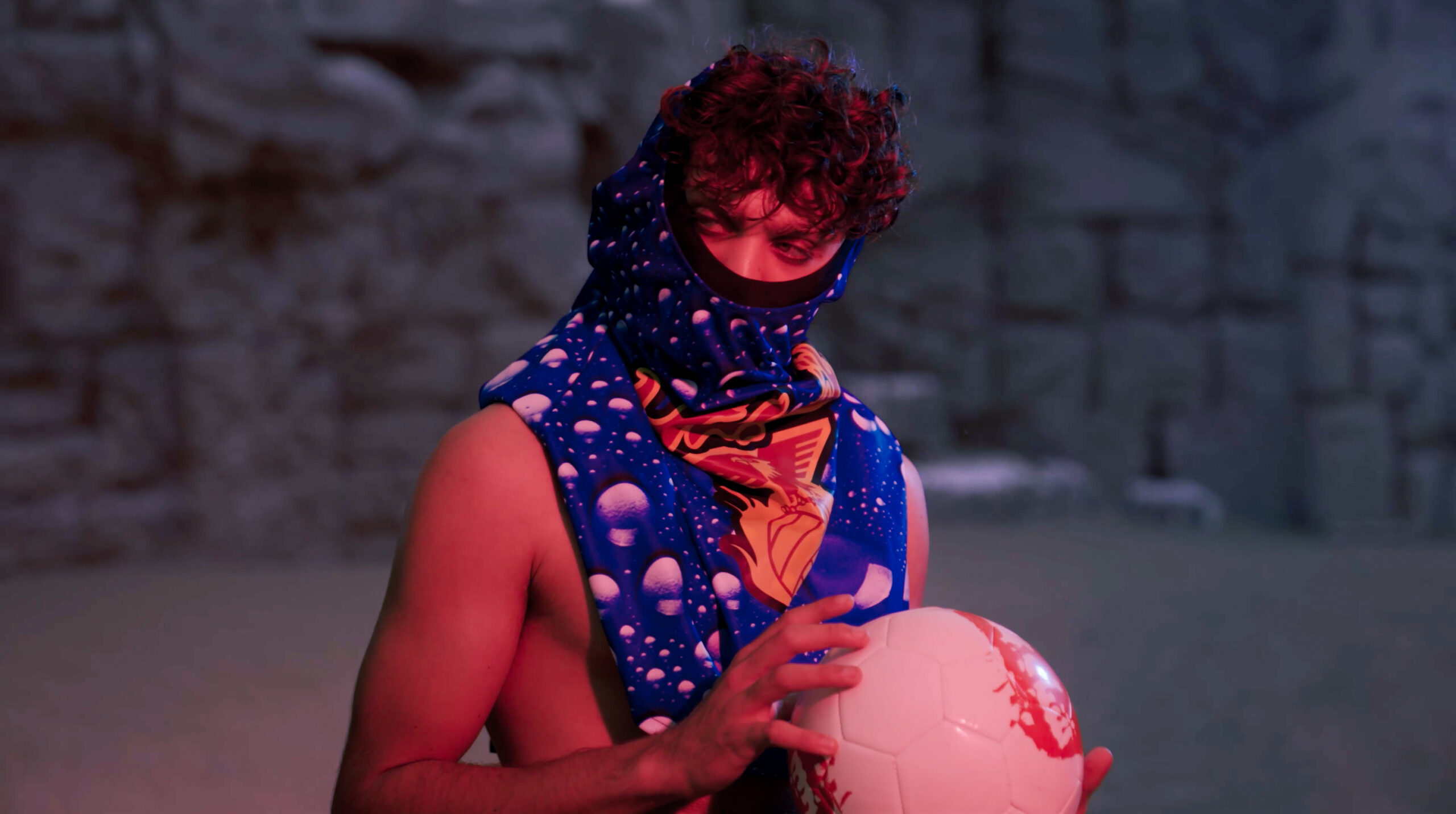
Central to Future of the Free is the notion of displacement—the feeling of being neither here nor there, of existing in the liminal spaces of the in-between. It is a theme that resonates deeply with many in the Arab, more specifically Palestinian, communities, who have endured the pain of uprootedness. The portrayal of soccer on the other hand is a universally resonant theme that transcends geographical and cultural boundaries. Through the filter of childhood and community, Farekh encapsulates a sense of unity, evoking a collective nostalgia that tugs at the heartstrings of a global audience.
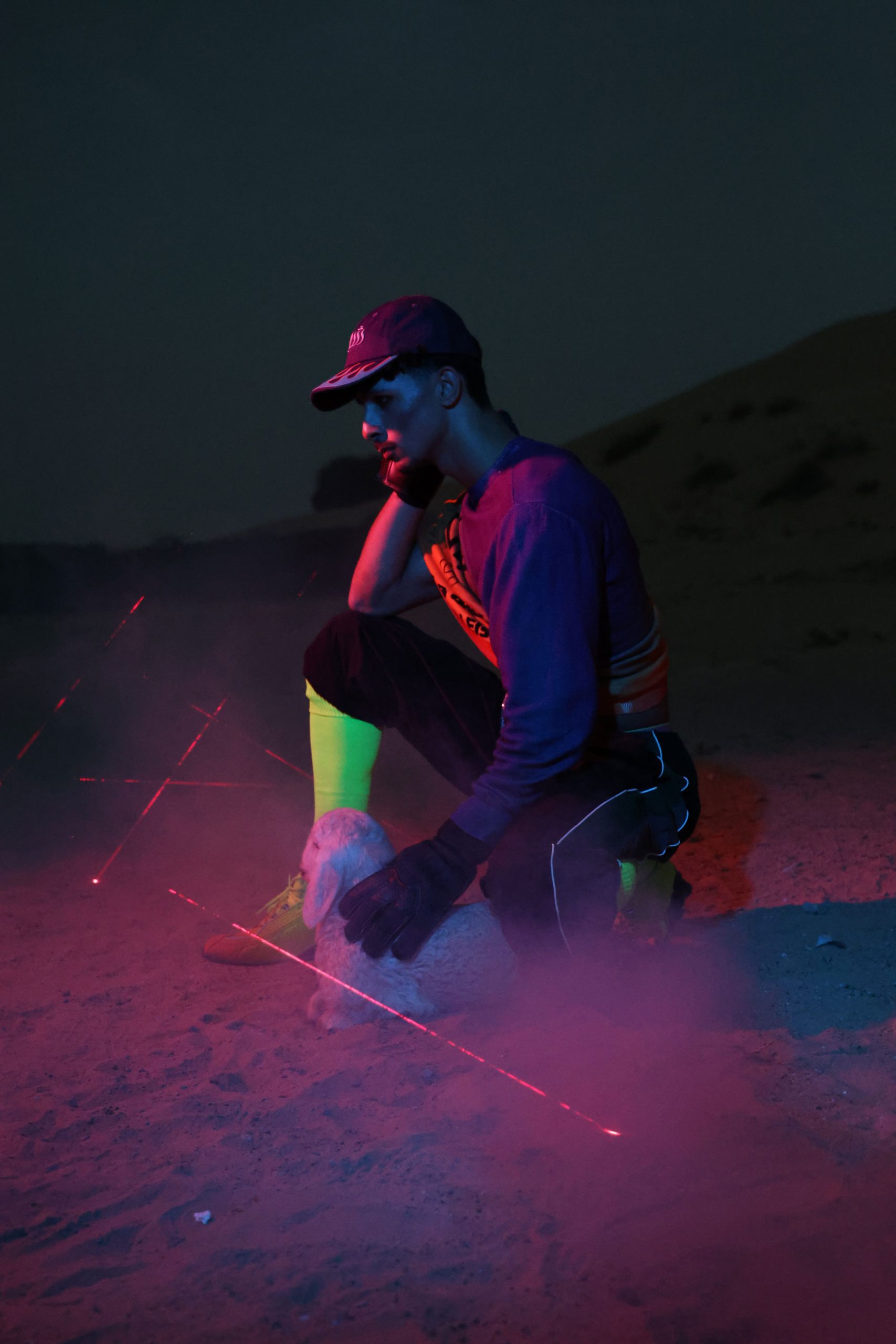
These scenes form a familiar tableau that aims to spark an awakening, mobilizing audiences to action.
Yet, amidst the serious undertones, there is a delicate balance as the project captures a lively picture that teeters on the edge of beauty and uncertainty. The ultimate goal is to enrich the storytelling landscape with more Arab narratives, ensuring diverse voices are heard.
“I create a world in my mind that I want to bring to life and then nestle inside of it. I grew tired of the constant need to translate myself.”
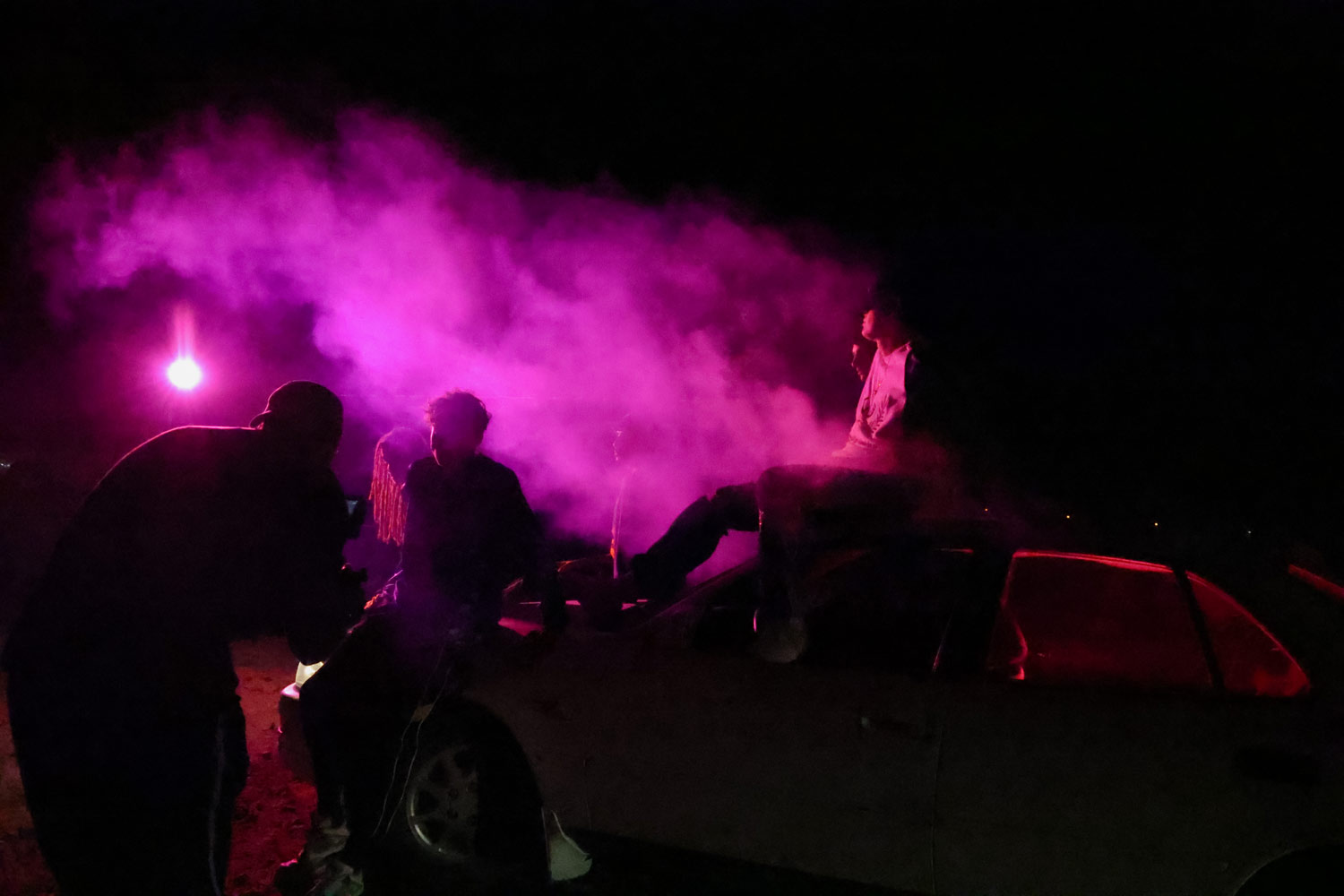
Credits:
Art Direction and Photography KARIM FAREKH
Producer ANTONIA VALENTINE
Production AV STUDIOS
Stylist KAMA MATRICARIA
Make-up and Hair ANNA VASILEVA
Production Assistant SERGEI FOMIN









